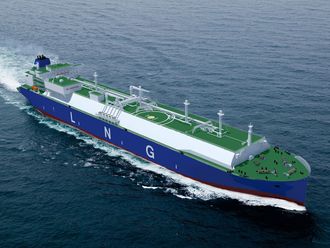Abu Dhabi
Demand concerns are expected to weight on oil prices this week, despite rising tensions in the Middle East following attacks on oil tankers in the Gulf of Oman last week, analysts said.
Two tankers, the Marshal Islands-flagged Front Altair and the Panama-flagged Kokuka Courageous, were attacked in the Gulf of Oman near Strait of Hormuz on Thursday. Oil prices rose by more than 4 per cent following the incident but slid down to trade at $62 per barrel on demand concerns due to US, China trade war and its implications on global economy.
Brent was trading at $62.01 per barrel, up by 1.14 per on Friday with West Texas Intermediate at $52.21 per barrel, up by 0.44 per cent.
“With no end in sight for a solution to the US-China trade war, the global growth implications continue to negatively impact the outlook for crude oil, which hit a four-month low this week,” said Ole Hansen, head of commodity strategy at Saxo Bank.
“The failure to build a geopolitical risk premium following the tanker attacks in the Gulf of Oman could indicate that the market is either sceptical of the narrative with regards to who did it, or that demand worries simply weigh too heavily at this stage.”
The monthly oil market reports from the Energy Information Administration, Opec (Organisation of the Petroleum Exporting Countries) and the International Energy Agency all showed another downgrade to world oil demand while non-Opec supply growth was kept stable at almost one million barrels per day above demand.
The IEA report also pointed out that non-Opec supply would, barring any geopolitical shock, “swamp” the market in 2020, thereby leaving no room for Opec to reclaim lost market share.
“Keeping both this and the Iranian tensions in mind, the upcoming Opec and Opec+ meetings, scheduled but not yet confirmed for late June, are likely to be challenging. Saudi efforts to keep Russia on board with production cuts beyond the second half, led alone 2020 could easily become an issue,” added Hansen.
Rise in US oil stocks due to higher production as well as weaker than normal refinery demand is also expected to pose a significant challenge to the oil market.
Opec member countries will meet on Friday in Vienna to chalk out a strategy to rebalance oil markets and decide whether to extend production cut agreement till the end of 2019.












